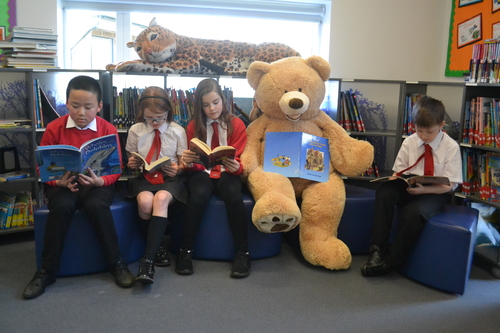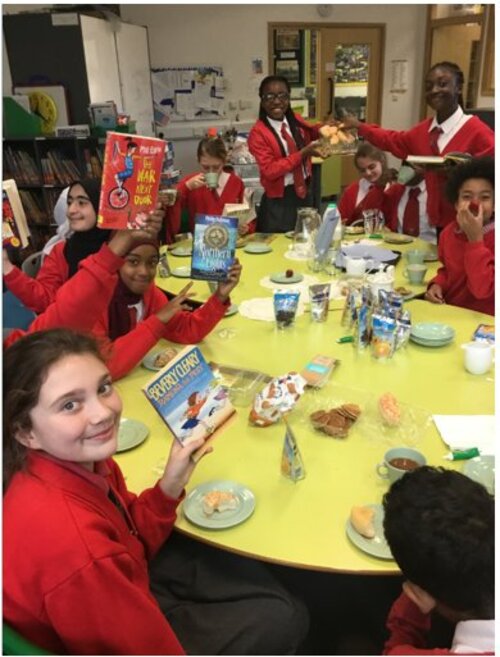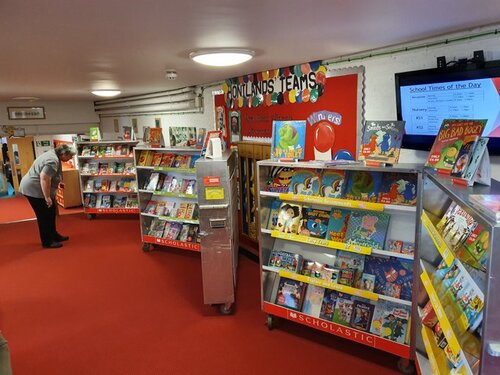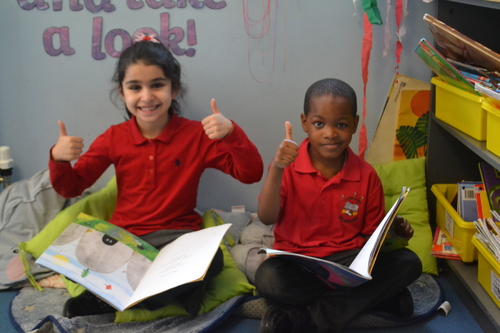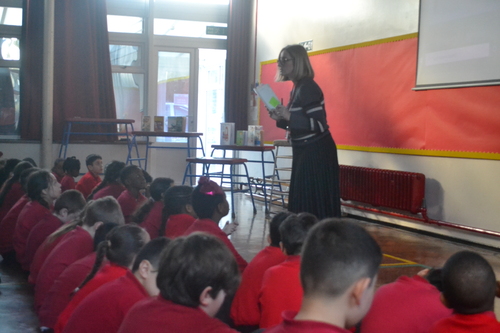At Honilands we believe that reading is a fundamental skill and is key to developing happy, confident learners. It is also key to developing the ability to be a lifelong learner. As well as academic attainment it has been shown that the the benefits of reading for pleasure go beyond this and stretch throughout a person's life.
Our aim at Honilands is to develop and embed a strong, sustainable reading culture within the school community. Confident and competent readers will foster a love of reading through a rich and varied experience of texts, in which they are empowered to exercise freedoms of choice and independence.
To support our children develop a love of books and of reading, we protect time within our day to ensure they are exposed to quality texts. These texts are used in English lessons and they are also part of our 'Reading Time' at the end of the day. Reading Time at the end of the day is the last 15 minutes of the day protected for sharing a book with the class. The texts that are shared are both diverse and challenging and include non-fiction as well as fiction, poetry anthologies as well as picture books. Not only are children introduced to new authors and genres in this time, they also have the teacher supporting them with new vocabulary and discussing the text.
Reading Time Spine
Part of this promoting the rights of the reader within school:
We have many initiatives that are taking place across the school to encourage reading for pleasure:
- A rich, diverse school library which pupils have access to.
- Engaging and well stocked class libraries.
- A rich curriculum which encourages extensive reading of books and other types of texts.
- English lessons that are based around 'core books' allowing children to be immersed in quality texts by outstanding authors that they may not otherwise encounter. This allows them to become absorbed in the story.
- Opportunities to read for pleasure are created in the timetable. Additionally books are made available at lunchtime for those wishing to read.
- Reading and books are regularly celebrated, be it as part of World Book Day or in our half termly reading assembly.
- School reading is not only synonymous with attainment but as something that is rewarding in its own right.
- Authors are invited into school to lead workshops and hold assemblies - recent visitors are the author and illustrator William Grill and the poet Neal Zetter.
- Home reading records and support in choosing the correct text.
- Visits to the local library
- Teachers sharing the texts that they are currently reading.
Things you can do at home:
- Ensure your child reads every day of the week for at least 15 minutes and record their reading in their Reading Record.
- Talk about what books they are currently reading.
- Ask questions when listening to your child read aloud (please see our school website for two very helpful resources on questions to ask your child when reading).
- Read books to your child / read books together.
- Visit local libraries and bookshops.
- It helps to build a reading routine: reading at a regular time, in a calm enviroment without distraction.
If you are struggling to pick books with your child, these lists from the Book Trust may help you:
Best Books for 0-5 years
Best Books for 6-8 year olds
Best Books for 9-11 year olds
